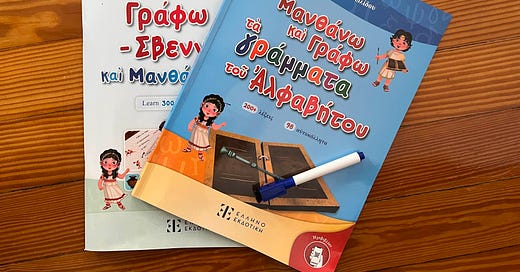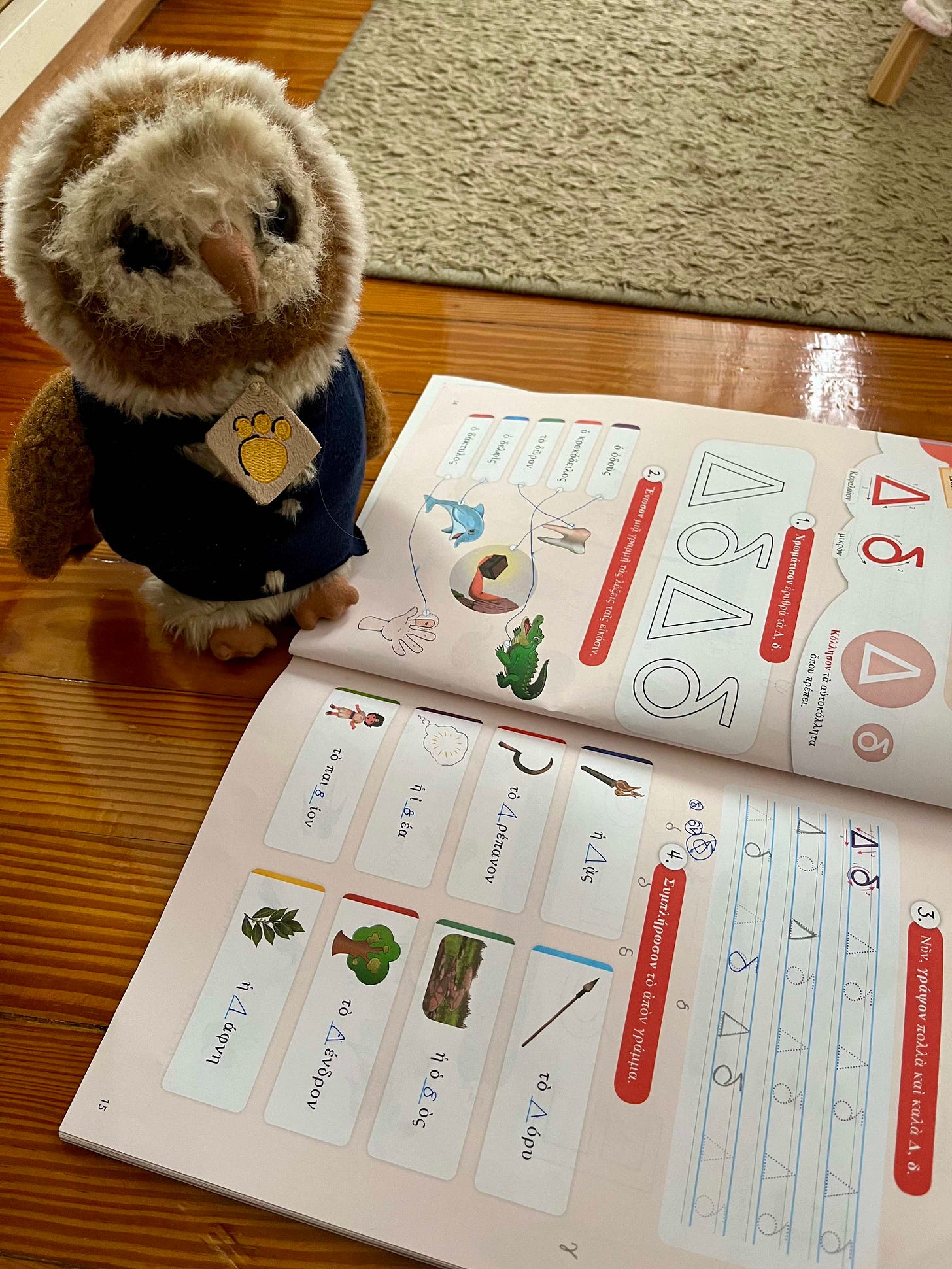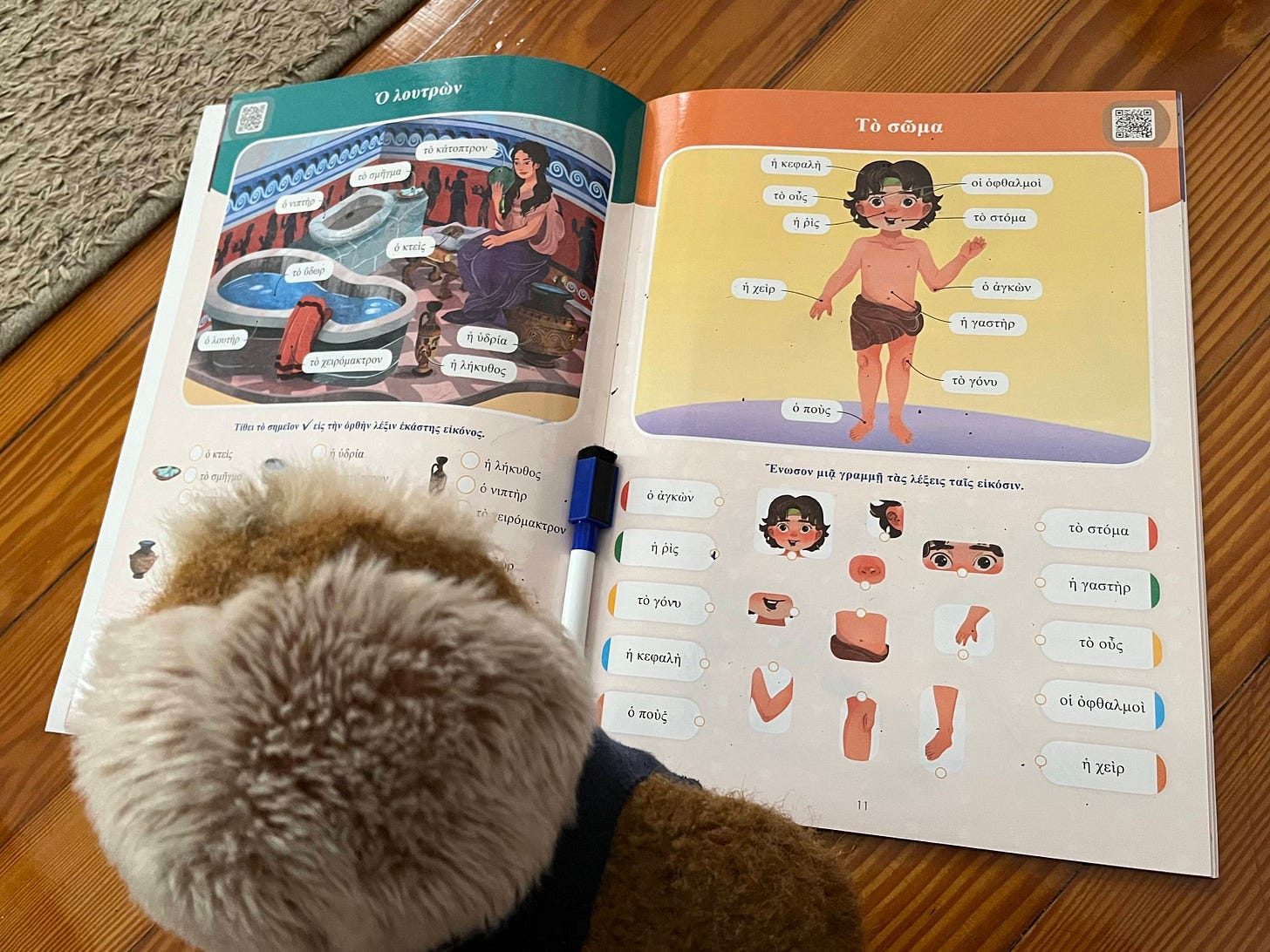"Λέγω" Games, Activities, Worksheets and More
Build up on the Building Blocks of ancient Greek
Dear Classical KIDS,
Learning ancient Greek in our modern world isn’t always so easy... this is partly because there aren’t many ancient Greek speakers, teachers who can help the next generation learn. Also, there aren’t so many resources to aid those in their learning journey.
That is why what Eugenia has been doing at Elliniki Agogi has been so important. Not only are they passing the wisdom of their ancestral language, but also creating fun new ways to learn and practice it.
We were so lucky, in fact, to test out Eugenia’s newest books which teach the alphabet and vocabulary. Frida, in particular, loves the dry erase notebook and will eagerly practice her ancient Greek practice on it. A definite win in for everyone!
So, before we delve into the games, activities and worksheets of our latest ancient Greek word of the week, λέγω, I wanted to make sure you know where you can get your own copy of her newest books:
Now, onto one of the important Building blocks of language itself, λέγω.
[If you missed it last week, make sure to catch up here].
In ancient texts, "λέγω" was often associated with declarations, discourse, and the act of conveying thoughts or ideas...so you can see how the ancient Greeks used it 'to speak'.
Over time, it has been used in various forms across different dialects of Greek and has influenced many derived terms in modern Greek, such as "λόγος" (logos), meaning "word" or "reason," as well as a lot of words we use today in English.
For instance, did you know these interesting words come from λέγω? Check them out below!
All the best,
Anya Leonard
Founder and Director
Classical Wisdom
Λέγω Activities and Review
By Eugenia Manolidou, Elliniki Agogi
Other Words from λέγω
Apology: From "ἀπολογία" (apologia), meaning "defense," it originally referred to a formal defense of one's actions or beliefs.
Prologue: From "πρόλογος" (prologos), meaning "before speech," it refers to an introduction to a literary work or play.
Eulogy: From "εὐλογία" (eulogia), meaning "good word," it refers to a speech or writing in praise of someone, typically at a funeral.
Questions:
1. What does the Greek word λέγω mean?
2. How does λέγω connect to modern words like dialogue and logic?
3. Can you think of other words that come from λέγω?
Activities:
1. Create Your Own Dialogue: Think of two characters - maybe from your favorite book, movie, or even two historical figures. Write a short dialogue between them about an interesting topic, like a fun adventure or a new discovery. Share your dialogue with a friend!
2. Craft a Logical Puzzle: Using your reasoning skills, create a logic puzzle that challenges others to think carefully. It could be a riddle or a set of clues that lead to a solution. For example: "I speak without a mouth, but words flow through me. What am I?" (Answer: an echo).
3. Present a Monologue: Choose a topic you feel passionate about—whether it's a hobby, an interesting fact, or a story you love. Write a short monologue about it, then present it aloud to practice speaking clearly and confidently.
Write it out!
Print, trace and copy λέγω with our printable worksheet here:
Lego Word Search
Look for all the words that relate to λέγω - print and play








